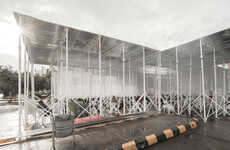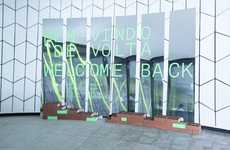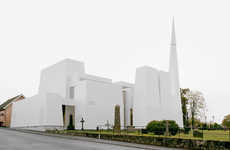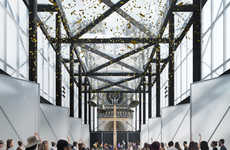



Religious communities are adapting virtually & in-person to COVID restrictions
Trend - Religious services are being delivered both through online platforms, as well as in-person, physically distant events. This presents individuals with a choice for what is most comfortable and safe for them as they practice their fate.
Insight - When faced with difficult and devastating times, individuals often try to focus on experiences or objects in their routines that help them feel grounded. The closures of non-essential businesses and services, as well as the need for physical distancing, have caused some of these comfort-inducing experiences to be inaccessible. As a result, individuals are looking for close alternatives that are modified as per government-imposed safety measures.
Insight - When faced with difficult and devastating times, individuals often try to focus on experiences or objects in their routines that help them feel grounded. The closures of non-essential businesses and services, as well as the need for physical distancing, have caused some of these comfort-inducing experiences to be inaccessible. As a result, individuals are looking for close alternatives that are modified as per government-imposed safety measures.
Workshop Question - How can your brand comfort consumers during difficult times?
Trend Themes
1. Modified Worship Services - Religious communities have adopted virtual and in-person events simultaneously, which could lead to an increase in hybrid worship services, blurring the line between physical and digital worship.
2. Pop-up Churches - Temporary structures that allow for physical distancing, like open-sided churches, have become popular in response to COVID-19, presenting opportunities to create innovative designs for similar temporary structures.
3. Virtual Church Services - Streaming services for religious services have become more popular due to the pandemic, presenting opportunities for tech companies to improve the quality of these services and provide a more immersive experience for viewers.
Industry Implications
1. Religion - Religious institutions are adapting to the pandemic by using technology and creating pop-up churches; opportunities exist for innovation in how religious services are delivered.
2. Architecture - Temporary structures for gatherings, like open-sided churches, have become popular in the pandemic, presenting opportunities for innovation in how these structures are built and designed.
3. Technology - The rise in streaming services for religious institutions presents opportunities for tech companies to improve the quality of these services and create a more immersive virtual worship experience.
4 Featured, 28 Examples:
36,393 Total Clicks
Date Range:
Jul 20 — Apr 21
Trending:
Average
Consumer Insight Topics:




























